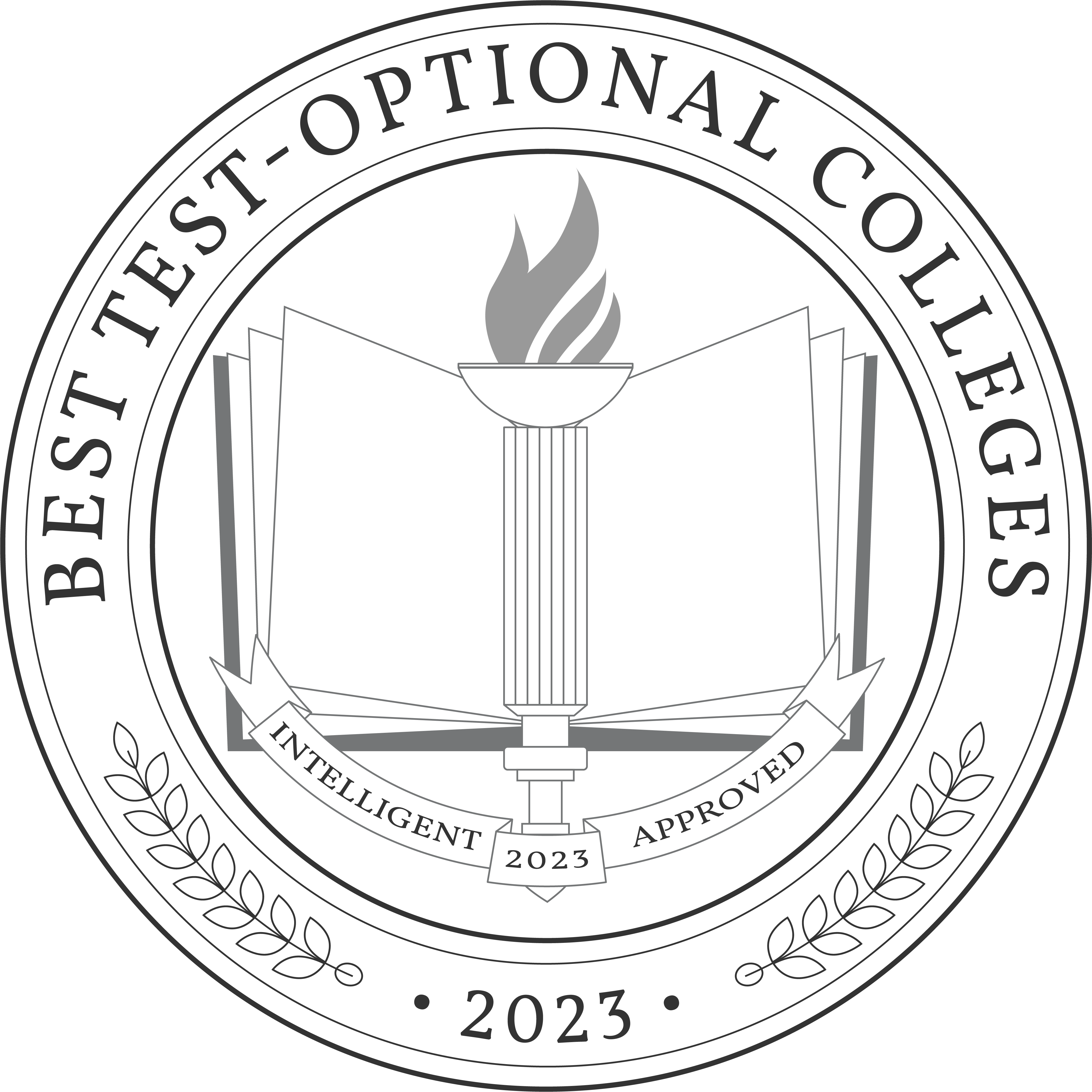Our Research
We considered several key factors to find the best test-optional colleges, including each school’s cost per credit, the number of credits required to graduate, and available delivery formats, such as online, on-campus, or a hybrid model.
Accreditation is one of the most important criteria we considered when reviewing the colleges on our list. To ensure our list only includes reputable schools with prestigious programs, we made sure to only include those accredited by trustworthy institutions such as the Higher Learning Commission, the Southern Association of Colleges and Schools Commission on Colleges, and the Middle States Commission on Higher Education. Students who attend these schools will receive a quality education and can transfer college credits if they decide to switch schools.
We also looked at programs available at each institution, the institution’s reputation, and total enrollment. After reviewing these factors, we assigned each program an Intelligent Score on a scale of 0 to 100.
- 21 hours to write this article
- 66 universities and colleges we assessed
- 116 education programs we compared
The Top 50 Best Test-Optional Colleges

Discover More Options
What You Should Know About Test-Optional Colleges
Students needing financial aid to fund their education should be aware that many colleges award merit aid based on a combination of academic accomplishments, including your GPA and standardized test scores. If you choose to withhold your test scores when applying to college, this may prevent you from receiving aid from the school, and you will need to apply for scholarships from other institutions.
Do not confuse test-flexible for test-optional. Test-flexible schools may not require you to submit your SAT or ACT scores, but they may require you to submit scores from other tests, like AP tests. While this may not be an issue for some students, poor test-takers are better off applying to a test-optional school where they can boost their admission chances with extracurriculars and admissions essays.
Some studies indicate test-optional colleges promote socioeconomic equality as they cater to students that may not be able to pay for test prep services or take tests multiple times to improve their scores. DEFINING ACCESS: How Test-Optional Works, a 2018 study by the National Association for College Admission Counseling, found test-optional policies can lead to an increased representation of “racial and ethnic groups often underrepresented in college populations.”
What’s Next?
When applying to a test-optional school, consider other ways you can boost your chances of admission and finance your education. Here are a few key points to keep in mind.
- Decide whether or not to submit your scores. Just because SAT and ACT scores are not required does not mean your test scores cannot help improve your chances of admission at test-optional schools. In general, you should only choose to not submit test scores if your scores fall well below the average of those achieved by students enrolled at the university. Check to see if the school you are applying to publishes its students’ test score percentiles to determine whether or not your scores are in line with what the school expects from its students.
- Take on more extracurriculars. If you choose not to submit your scores, it is important to strengthen the other components of your application. Extracurriculars can significantly increase your chances of acceptance at a test-optional school. Leadership activities, internships, athletics, volunteer activities, and academic clubs are good ways for students to bolster their academic resumes.
- Review each college’s test-optional policies. Not all test-optional schools are test-optional for all students. Some colleges that advertise test-optional admissions still require certain students to submit test scores depending on certain factors. George Washington University, for example, is a test-optional school that requires homeschooled students and recruited athletes to submit test scores. Other schools are only test-optional for students with a GPA above a certain threshold. Before applying to a school, make sure to review its test-optional policies to ensure you are not required to submit your test scores.
- Apply for financial aid. Some schools award merit aid on the basis of standardized test scores, so students that do not submit their scores may miss out on financial aid. To get the financial aid you need, you should apply for scholarships and financial aid, starting with Federal Student Aid (FAFSA). By applying for aid through FAFSA, you may be qualified to receive a number of grants, scholarships, and subsidized student loans to help pay for college.